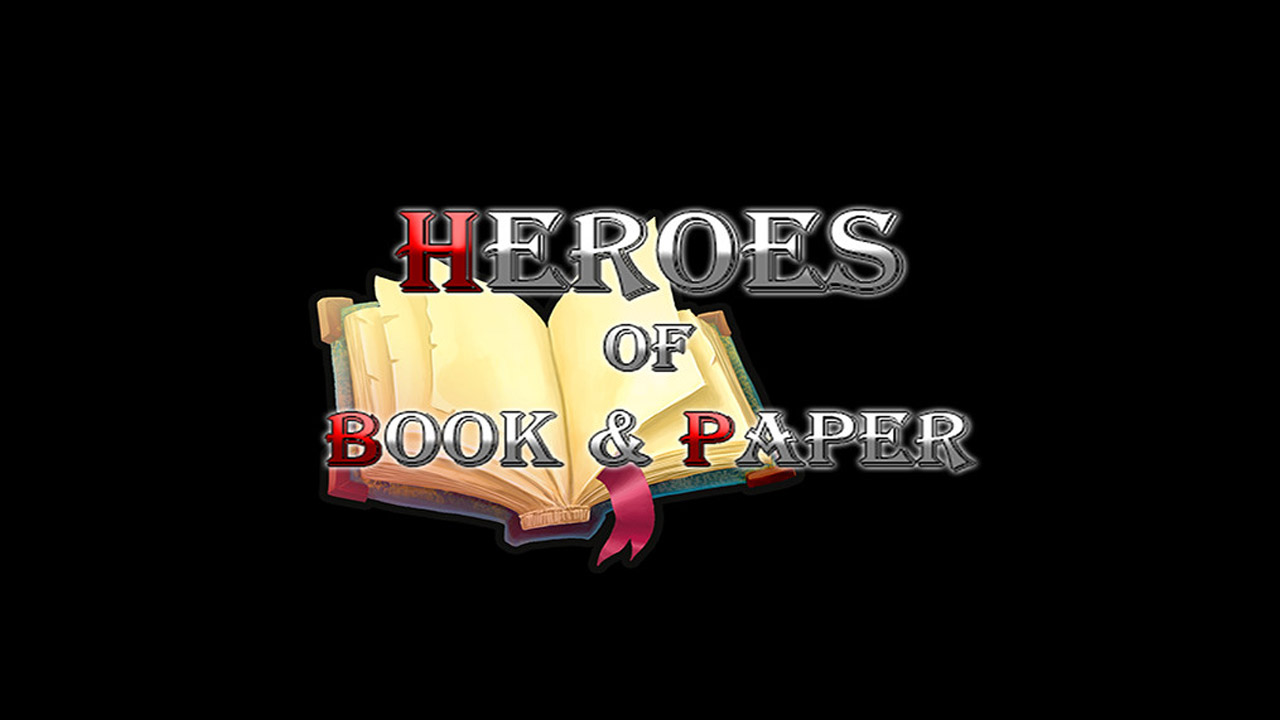Here’s a concise manual that elucidates the HB&P game system, provides instructions on gameplay, and delves into the intricacies of adventure design within the game.
Select Game Modes
At the beginning of the game, you’ll be presented with two options: “NEW GAME” and “CAMPAIGN.”
The “NEW GAME” option allows you to enjoy the free mode, which is ideal for beginners who are new to HB&P. In this mode, you have the freedom to choose from various adventures and set the desired difficulty level for each one. All experience points, items, and character progress are retained upon completing a quest. However, if your player character perishes during a quest, the accumulated experience points will be lost, although any acquired loot will still remain in your inventory.
On the other hand, the “CAMPAIGN” mode generates a sequence of five random quests that must be completed in a specific order. It’s important to note that not all adventures in the game, such as “Your first adventure” and “The Last Battle,” are included in the campaign. If your character succumbs to defeat during the campaign, the campaign will come to an end. This game mode is particularly recommended for seasoned players with ample experience.
Character Class Selection
Regardless of whether you’re playing in free mode or campaign mode, players are required to choose their character’s class, starting weapon, and, if applicable, their initial spell (provided the chosen class is capable of spellcasting).
Each class offers a distinct playstyle and approach to tackling adventures. The combinations of class, weapon, and starting spell can significantly influence the difficulty level of the game. For instance, it will be considerably easier to navigate the game as a warrior equipped with a powerful, brute force-oriented weapon compared to playing as a bard armed with a spear and relying on melodic spells to enchant foes.
Attributes
- Strength – This attribute is primarily centered around combat abilities. It enhances the hero’s accuracy and effectiveness when wielding weapons associated with strength. However, events that specifically rely on this attribute are relatively infrequent.
- Dexterity – Another attribute with a combat emphasis, dexterity improves the hero’s precision in combat situations. Weapons that rely on dexterity benefit from this attribute. While there aren’t many events that require dexterity checks, a few may call for it to overcome certain challenges.
- Constitution – This attribute determines the hero’s starting hit points for each adventure. It plays a crucial role, particularly in events that pose a significant risk to the character’s well-being or survival.
- Wisdom – The primary attribute for spellcasting classes, wisdom directly impacts a character’s proficiency in acquiring and utilizing spells. A higher wisdom attribute makes it easier to learn new spells and enhances the potency of existing ones. Some events in the game may also involve wisdom checks.
- Intelligence – This attribute focuses predominantly on investigative tasks such as searching for objects and uncovering secret passages. It proves vital in numerous events where intellect and observation come into play.
- Charisma – This attribute is specifically associated with events and interactions. It serves as a measure of the hero’s charm and persuasiveness, often enabling them to obtain extra assistance or overcome obstacles more smoothly during quests.
Game System
The game system employs a unique D21, yes, a twenty-one-sided die! Consequently, the resulting rolls can range from 0 to 20 (including the possibility of rolling a 0).
To determine success or failure, any roll equal to or below the attribute required for the specific task will be considered a successful outcome. Conversely, if the roll exceeds the required attribute value, it will be regarded as a failed roll.
The Weapons
Weapons in the game are typically accompanied by a bonus value that can range from -5 to +3. This bonus value, whether positive or negative, is directly added or subtracted from the hero’s relevant attribute when determining the impact.
For example, a weapon with a -5 bonus and reliance on Strength would require a die roll equal to or lower than the hero’s Strength attribute minus 5 to successfully hit an enemy. On the other hand, weapons with positive bonuses (+1, +2, or +3) enhance the hero’s attribute in combat, making them more effective. It is worth noting that weapons with positive bonuses, especially +2 (epic) and +3 (legendary), are considered superior choices compared to weapons with negative bonuses (penalties) such as -5, -3, -2, or -1.
In combat, weapons utilize either the Strength or Dexterity attribute to determine their effectiveness.
The Combat
To reiterate, all weapons directly adjust the hero’s combat attribute by adding or subtracting a bonus or penalty value. A successful hit on an enemy occurs when the resulting attribute value, after incorporating the weapon’s bonus or penalty, is equal to or lower than the hero’s attribute. Each combat encounter specifies the hit value required for success.
Regardless of the enemy’s armor rating, any hit inflicts a minimum of one point of damage. The total damage dealt by a weapon is determined by subtracting the enemy’s armor value from the weapon’s maximum potential damage.
In contrast, spellcasting in combat does not involve die rolls. Casting a spell is always successful, bypassing the need for chance-based outcomes.
During combat, only one spell can be employed, and it must have been previously equipped. Careful consideration should be given to selecting the most suitable spell from your repertoire for each encounter.
The Design of the Adventures
The design of all adventures ensures that they can be successfully completed without engaging in combat even once. This means that any character, even those who are ill-prepared for fighting or lack combat spells, can achieve victory. The choice of approach, whether it involves fighting or avoiding confrontations, is left entirely up to you.
Throughout the adventures, there are opportunities to utilize a wide range of items and spells. While certain items hold greater value than others, the items stored in your inventory can be helpful in almost every quest, along with the available spells.
In each adventure, there is at least one opportunity to acquire an epic weapon with a +2 bonus or a legendary weapon with a +3 bonus. Epic weapons are typically obtained by uncovering secret locations or by employing a combination of items to overcome obstacles. On the other hand, legendary weapons can only be acquired by defeating a legendary enemy.
It is important to note that these rules have exceptions in the first adventure, titled ‘Your first Adventure,’ and the final adventure known as ‘The Last Battle.’
The Replayability of the Adventures
Furthermore, it’s worth highlighting that all adventures, without any exceptions, incorporate procedural or random elements that contribute to a dynamic storytelling experience each time you replay them, irrespective of whether you use the same character. This means that new locations, traps, enemies, items or loot, and different story branches can be generated with each playthrough. Moreover, the decisions made by players throughout the adventure influence the outcome, resulting in multiple possible endings.
Occasionally, even when making the same decision as in a previous attempt, unexpected variations may arise, leading to different outcomes. This element of unpredictability adds excitement and encourages players to engage in multiple playthroughs, allowing them to discover and enjoy the diverse possibilities offered by the game. I highly encourage players to give it a try and explore the ever-changing nature of the adventures.



